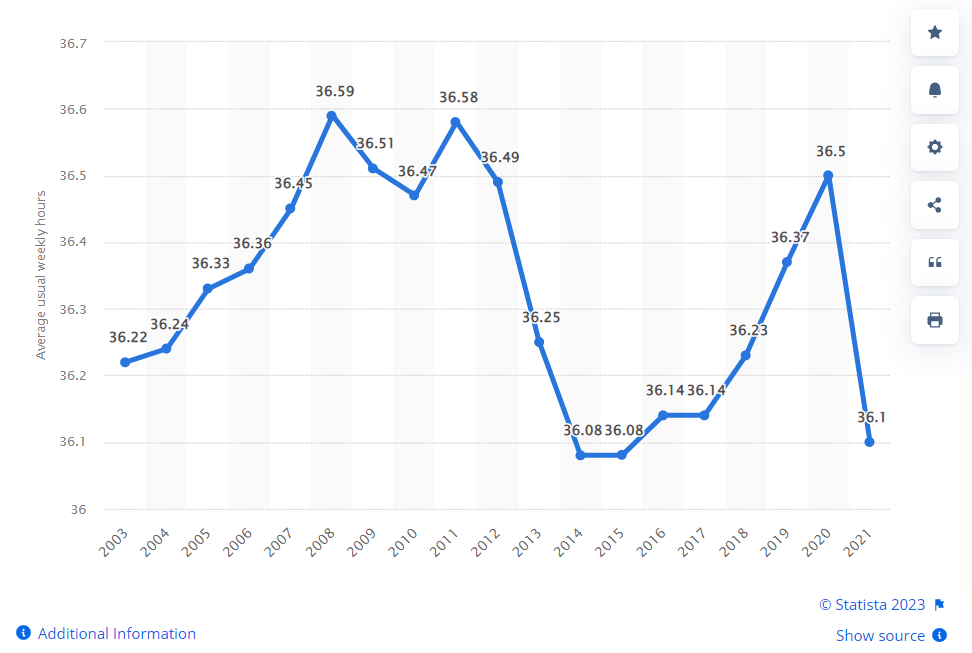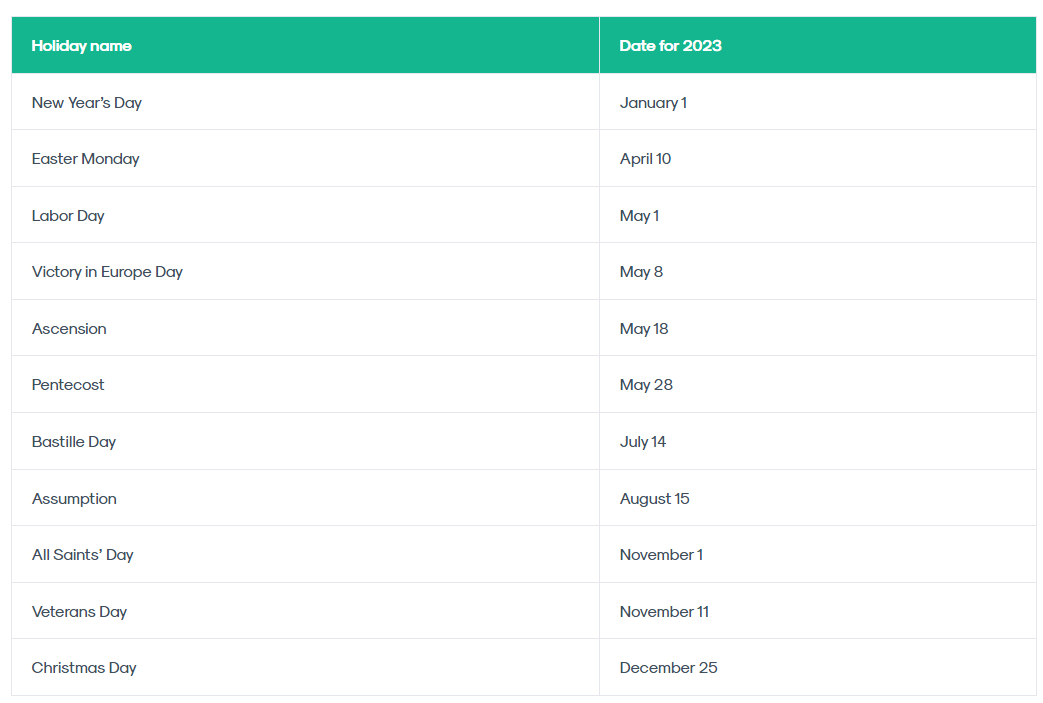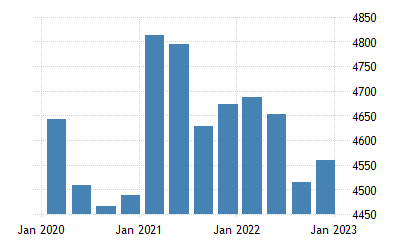France
In 2024, France's first national 4 day week pilot launched, improving on their 35hr / week legally mandated workweek.
4 Day Work Week in France
In 2024, France's first national 4 day work week pilot launched, in partnership with Emlyon Business School (applications close July 31, 2024). This initiative, backed by 4 Day Week Global, aims to enhance work-life balance by allowing 50 companies to adopt a 32-hour week with no cut in pay.
Working Hours in France
France has a legally mandated 35-hour work week which was established over 22 years ago in 2000.
The standard working hours in France are typically between 8 AM to 4 PM or 9 AM to 5 PM. These hours include a 1-hour unpaid lunch break. Weekly, employees work a total of 35 paid hours, which is structured at 7 hours a day for five days a week. Any longer than this is considered overtime.
A major positive is that French law is very strict when it comes to limiting working hours. The maximum working hours for an employee is capped at 10 hours a day and 44 hours a week. These hours include any overtime worked. The average employees’ hours rarely exceed 44 per week.
Would you like a 4 day work week?
Average Working Hours in France per Week

As we can see from the graph, although the average hours worked in France is subject to fluctuation, it hasn’t strayed far from the 35-hour work week over a period of almost two decades.
Overtime in France
Any hour that’s worked over the legal 35-hour weekly limit is considered overtime. So, in such cases, employees who partake in extra work time are entitled to overtime pay or more days off. The overtime pay rate is often 110% to 150% higher than the established working hourly rate. This ensures employees are adequately compensated for working longer than the legal limit.
Essentially, overtime is calculated per week instead of per day. In France, the week is commonly defined as starting on Monday and ending on Sunday. However, organizations are free to change how they define the consecutive 7-day period.
Vacation Policy in France
In France, employees get a minimum of 30 paid days off a year, which is more than most countries in Europe. Better yet, employees get access to various different types of leave, which all have a bare minimum that is mandatory for employers to provide.
Paid days off can be taken for:
- Annual vacation leave: Known as ‘les congés payés, employees can accrue 2.5 paid vacation days for each month worked.
- Sick leave: Employees need to produce a medical certificate to get paid sick leave.
- Maternity leave: Usually 16 weeks long but can be extended in case of any issues or the birth of more than one child.
- Paternity leave: Usually 28 days long, but extended to 32 days for the birth of more than one child.
- Parental leave: Up to 310 working days in case of a sick or disabled child. The Family Allowance Fund pays daily allowances.
- Adoption leave: If the child is under 3 years old, adoption leave is 18 weeks. If the child is older than 3 years, leave is 16 weeks.
- Sabbatical leave: Usually offered to employees who have completed at least 36 months of work with an employer
Employees are also offered time off for special circumstances such as:
- Bereavement leave
- Natural disaster leave
- Leadership training leave
- Teaching leave
- Caregiver leave
- Job mobility leave
In addition to paid vacation days, French employees can look forward to a total of 11 public holidays a year.

Part-Time Working in France
Part-time employment in France has been steadily increasing as more employees transition from fill-time to part-time work. The figures in the last quarter of 2022 stood at 4558 thousand, which increased from 4515 thousand in the third quarter of 2022. This can most likely be attributed to the growing emphasis on flexible working in France. It helps companies stay afloat during times of economic downturn and helps employees maintain employment while reducing their working hours.

Remote Working in France
Employees can engage in remote work through a collective agreement or a contract set up by the employer. A practice that was once introduced on a voluntary basis pre-pandemic, to then being a non-negotiable reality for 30% of France’s workforce during the pandemic, has led to teleworking becoming more widespread in various industries.
In the professional sector, the most frequent teleworkers were found to be those working in the information and communication industry. About 6.9% of French professionals in this industry worked remotely for the whole week in December 2021.
In-office employees who have roles that don’t require them to always be in the office can request to work from home when it’s appropriate. An employer wouldn’t need to change an employee’s contract to allow for teleworking. However, if an employer does deny an employee’s request to telework, they are required to provide adequate justification.